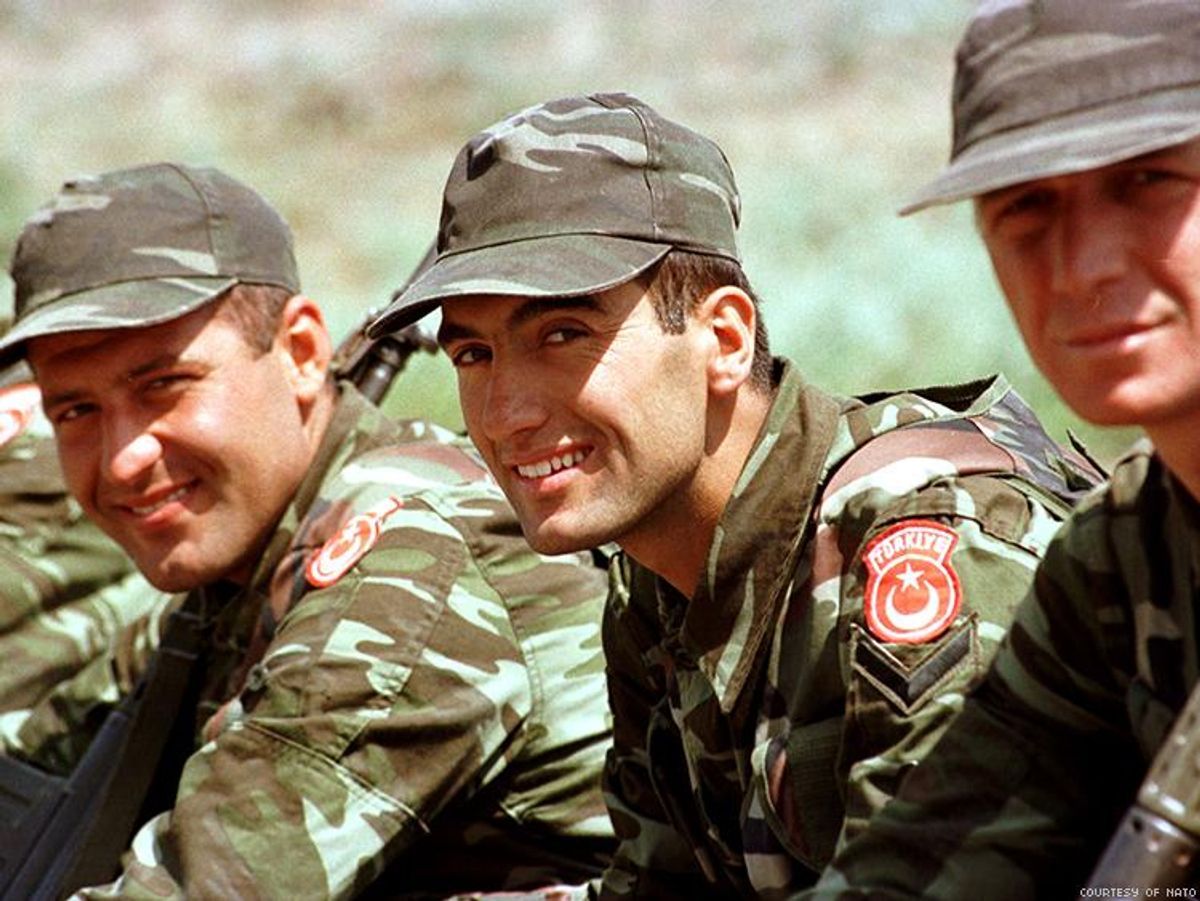The Turkish Armed Forces this month quietly revised a longstanding policy that required gay recruits to out themselves, submit lewd photos, and undergo an "anal exam" to prove they were gay, reports Middle Eastern news outlet Al-Monitor.
The Turkish military has effectively adopted a version of what was known in the U.S. as "don't ask, don't tell," in place of the policy that required conscripts to out themselves verbally, submit to an unscientific rectal exam, and to submit photos of themselves having gay sex before being discharged because of their sexual orientation.
All Turkish men between ages 21 and 41 are required to serve 12 months in the nation's military, unless they are granted an exemption, which Al-Monitor describes as "difficult" to obtain, with military doctors "generally making exceptions only for those who are sick, disabled, or homosexual."
But in an update made "silently" to military policy this month, "doctors will now merely observe the behaviors homosexuals display and the verbal declarations they make," reports Al-Monitor. "In other words, a homosexual can choose to disclose or not to disclose his identity. If he does, this declaration will be the sole basis for a doctor's decision."
The international news site suggests the policy revision comes as Turkish diplomats and policymakers strive to bring the Muslim-majority nation's policies into alignment with international human rights standards. While Turkey is generally considered to have a more tolerant and liberal environment than its neighboring nations of Syria and Iraq, homosexuality remains deeply taboo. This spring, a rash of violent attacks targeted Turkey's LGBT community, who are not protected by nondiscrimination or hate-crime legislation.
Even under the revised military policy, a self-declared gay identity is still grounds for dismissal for military school students, commissioned, and noncommissioned officers. Such a dismissal, denoted by an "unfit report" that effectively outs the service member, can lead to severe social, professional, and religious isolation and cultural rejection, notes Al-Monitor. A study conducted this year by the Al-Monitor reporter who authored the article found that 96.3 percent of current Turkish military officers did not believe gay people should be allowed to serve in the military.
Originally implemented in 1986, Turkey's blanket ban on homosexuality in the military initially listed being gay as a mental illness -- specifically an "advanced psychosexual disorder." Al-Monitor reports the language of that rejection was softened in 2013, categorizing a gay identity as part of a "sexual identity and behavioral disorders," "which effectively meant that homosexuality was now acknowledged as a chosen identity and the military." Nevertheless, openly discussing one's gay identity or being caught having same-sex intercourse remain grounds for expulsion from Turkey's military.



















































































Here's our dream all-queer cast for 'The White Lotus' season 4